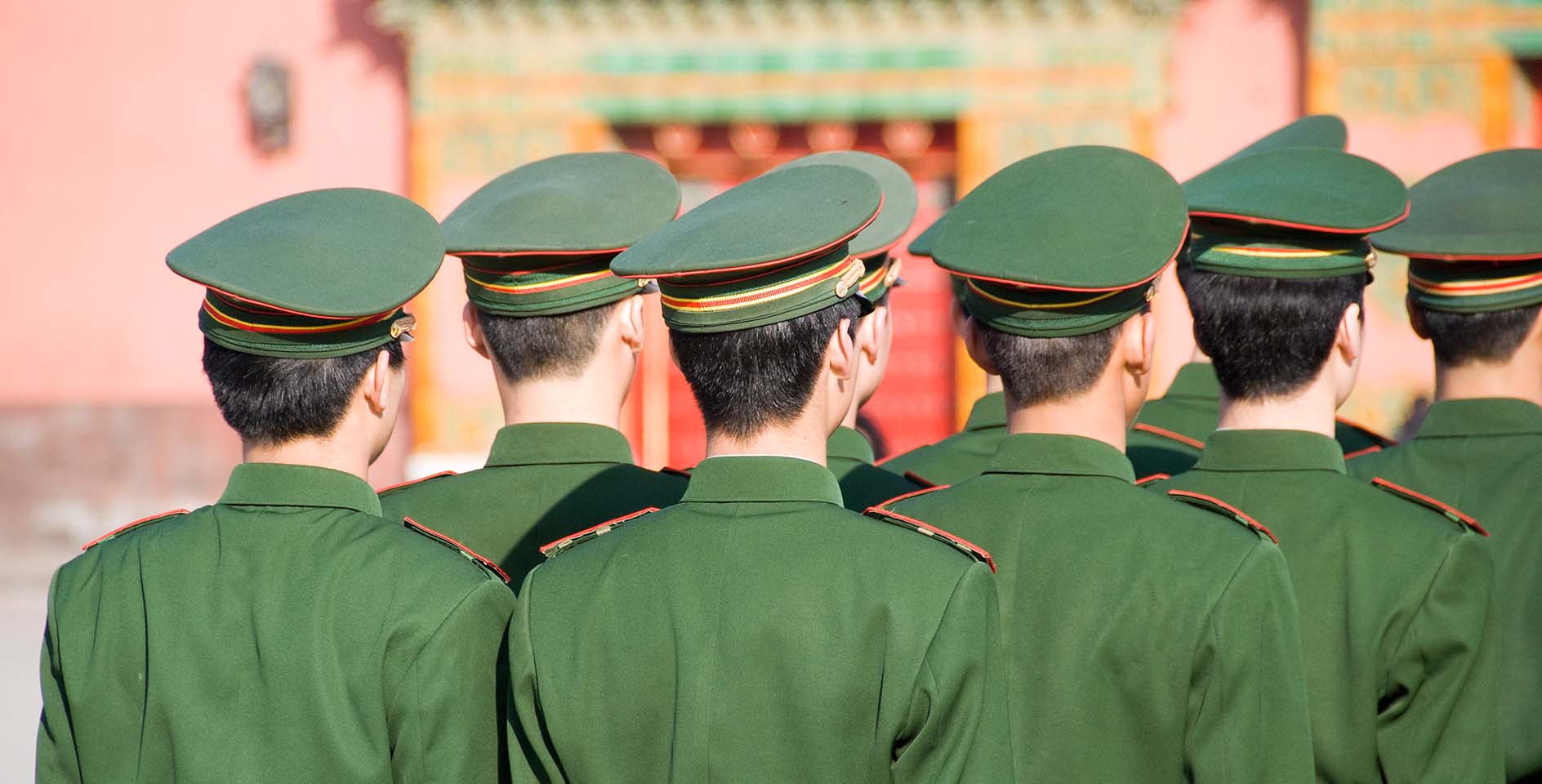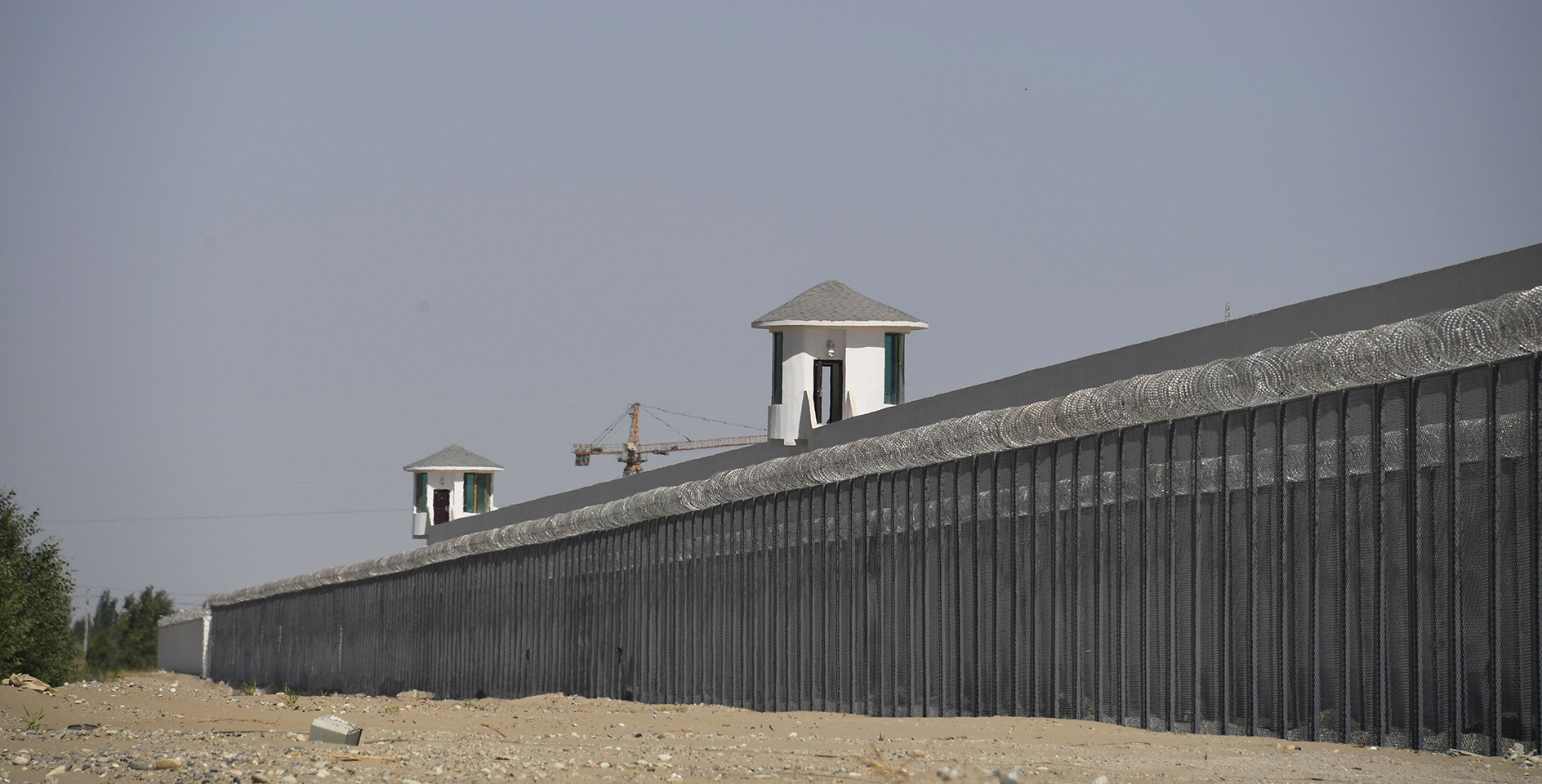The gross human rights violations committed by the Chinese Communist Party and their authoritarian rule has been in the news lately because of the Winter Olympics. China’s citizens, and specifically minorities like the Uyghur people, have lived under oppression and persecution for years. Bethany Allen-Ebrahimian leads the weekly Axios China newsletter and covers China’s role in the world. Below, she answers questions about the history of China’s influence, how they seek to gain power, and how we can learn more about this country.
Jason Thacker: As we get started, can you tell us a little bit about your path of researching and reporting on China?
Bethany Allen-Ebrahimian: I first went to China in 2004 as part of a study abroad program and really loved my time there. I was in Xiamen, which is a city on the coast, a tropical part of southern China. It was just beautiful, and I really loved the Chinese friends that I made. I also thought the Chinese language was beautiful and fascinating, and the culture and history were interesting. It really changed the course of my life. I never really looked back. After I graduated from undergrad, I went back. I was in China from 2008 to 2012. I lived in Beijing for one year, and in Nanjing for one year. I went back to Xiamen for two years, and then I got a master’s in East Asian studies and started on the path that I’ve been on for the past eight years, which is as a journalist based in D.C., but focusing on China.
JT: Can you help us to understand a bit of the recent history in China and how they have become a global superpower under president Xi Jinping?
Bethany: So, that started in the 1980s and then rather more quickly in the 1990s, with China’s reform and opening up economically, culturally, and diplomatically to the rest of the world. After China’s accession to the World Trade Organization in 2001, you saw enormously quick economic development, 10-12% GDP growth, for a while it held at 18% GDP growth, and certainly economic growth comes with a lot more power in a lot of ways. But what we’ve really seen Xi Jinping do is skillfully locate all the areas where China wasn’t really taking advantage of the power it could have — in ways that it can use its economic strength and translate that into geopolitical power, diplomatic power, other kinds of strategic power. Jinping has really focused on that with his Belt and Road Initiative. It seems that he is trying to create a China-centric world order for the 21st century through bringing in countries bilaterally in their relationship with China and giving them loans and infrastructure projects and deals. But, there’s a lot of strings attached to that, namely supporting China’s goals in multilateral institutions, voting for what they want and giving them backing whenever desired. That’s one aspect.
The diplomatic push has been really huge, but also we’ve seen a different kind of economic power, a kind that people are calling “economic coercion,” and that’s how China has weaponized access to its markets. For political reasons, in some ways, you could say it’s somewhat analogous to U.S. sanctions. However, the way that China uses its markets in this way is usually to support its own narrow geopolitical interests. So, hot-button issues like the genocide in Xinjiang or policies in Tibet or the way that it has crushed the democracy movement in Hong Kong or people who get too close to Taiwan, you see the Chinese government denying access, usually in a very opaque kind of way for those kinds of actions and speech.
The Chinese government has also deployed that kind of power for pretty straightforward defense reasons. So, for example, a number of years ago, the South Korean government deployed a U.S. missile defense system called “THAAD” on South Korean soil, and this is mainly as part of their self-defense strategy against North Korea, but it also is right next to China. The Chinese government really did not like this and did not want South Korea to deploy it. So, they basically implemented a bunch of de facto kinds of economic measures against South Korea, including stopping Chinese tourists from going there, a big source of revenue in South Korea, prevented K-pop bands from performing in China or even streaming on Chinese music websites. There was sort of a boycott of Lotteria, which is a South Korean restaurant chain on whose land the THAAD system was deployed. The idea here is that Lotteria or other South Korean companies in the future would lobby their own governments not to have U.S. missile facilities.
What’s really interesting is the way that China acted during the coronavirus. I have seen these ways that the Chinese Communist Party has politicized a lot of its economic ties for these narrow authoritarian political interests. I’ve watched them for years doing that more and more. With coronavirus, we saw the Chinese government deploy this exact kind of power for the first time on an issue that literally affects every person in the world, and that was the discussion of the origins of the coronavirus. So, the Prime Minister of Australia, Scott Morrison, called for an independent inquiry into the origins of the coronavirus, and almost immediately the Chinese government levied a bunch of tariffs on Australian imports into China and very dramatically affected their wine industry and a number of other industries there. That is the same kind of economic coercion.
JT: What are some of those industries that the Chinese are especially influential in? Obviously, technology is one of those, but what are some of the other industries that have global effects?
Bethany: Well, one of the earliest examples of this is Hollywood. For example, in 1997, two major films were released that were sympathetic to the Tibetan people. One of them was Seven Years in Tibet with Brad Pitt and one of them was Kundun, which was a Disney film about the life of the Dalai Lama. The Chinese government, as a response, didn’t allow Disney’s Mulan to be shown in China. That was the punishment for Disney. Then, for the studio that had produced Seven Years in Tibet, all of their movies for years afterward were kept out of the Chinese market, even if they had nothing to do with China. And Hollywood really got that lesson. I don’t know of any other industry that was targeted so early, so dramatically, and so effectively, because 1997 was the last time that there was a major Hollywood production about Tibet, and there have been no big blockbuster films that present China in a negative light or across some kind of obvious red line.
There’ve been numerous examples of self-censorship in Hollywood and that’s just gotten more obvious and more extreme, especially under Xi Jinping, and especially now, as the Chinese box office is the largest box office in the world. We’re seeing so many examples of that and even a proactive messaging that is pro-CCP. For instance, we’re not going to get from Hollywood a movie like Hotel Rwanda for the Uyghurs. If that movie is made, it’s not going to be made by a major Hollywood studio because it wouldn’t pass CCP censors.
Technology is a more current example. What’s happening now is not that China’s markets themselves are so lucrative, which they are, but the Chinese tech scene is actually very vibrant. Their STEM research and science and technology sector is really cutting edge, with the possibility of leading the world in artificial intelligence and quantum computing and some of these other emerging technologies. This is a whole other level of influence, and it’s an explicit policy by the Chinese government. This means that tech companies in the U.S. not only feel that they need to tap the market for revenue, but also that they need access. Maybe at some point they’re going to want to do partnerships or they’re going to need access to certain forms of technology to do what they’re doing.
This is looming in our near future, and what we have seen over and over from the Chinese Communist Party is that any time they have that kind of leverage, they use it for political reasons. And it’s far beyond just censorship. I really want to move past that as the type of control and influence that we’re talking about. We’re talking about shaping behaviors, shaping global standards, shaping how these companies push their own government, what they push on their own governments, how to regulate them, and what they allow, and even shaping what’s considered acceptable for an American company to do or to be a part of.
For example, the Chinese tech sector has become so influential they are trying to change government backing, trying to set standards by a U.N. standard-setting agency. The Chinese government is trying to set the global norms for issues that are in themselves harmless, but could give a big advantage to Chinese companies. So an interesting analogy here would be 3G. U.S. companies are the ones who set the standards for 3G, and that gave them a huge advantage in the 3G market around the world. So U.S. companies were like the largest telecommunications companies in the world, and it gave them an enormous amount of power which greatly contributed to American prosperity. The Chinese government and Chinese companies are trying to do that, for example, with 5G, with them being the ones that set these very technical standards that would set Huawei and ZTE and other companies up for decades of dominance, with lots of wealth flowing into the hands of Chinese elites. A difference is that the Chinese government would absolutely politicize that power and that excess in a way that the U.S. government never did.
JT: Can you give us a little context on China today about the state of surveillance?
Bethany: The Chinese government is building what you can call a modern 21st-century surveillance state. They implement real name registration, so it’s a lot harder to hide behind anonymous accounts. Local public security bureaus generally have a cyber section, so they monitor what people are saying online, in emails, and all kinds of web traffic in real time. They call in people to talk and arrest people based on what they say or do online, which, you know from a crime-fighting perspective is OK. But in China, when there’s a ton of political crimes, any kind of speech can potentially be criminal, or any kind of organizing action can be criminal.
The assumption is that if you’re in China, anything that you’re saying or doing online is being monitored either by a human being or by some kind of algorithm that will send alerts to a real person. This is going to happen whether you’re chatting on WeChat, which is like WhatsApp, whether you’re talking on the phone, whether you’re sending emails, your bank transactions; basically anything can be monitored, and that’s enabled in part by increasingly sophisticated data analysis. Since there are not enough human beings to monitor all of that, there are also tons of surveillance cameras blanketing cities throughout China with facial recognition technology. And there is a growing ability to use data to analyze what those images are so that it doesn’t have to be monitored by people like security guards staring at TVs. There’s a sense now that it’s very difficult to hide anywhere, whether or not you should be able to hide or not.
JT: You wrote a piece last fall at Axios about the pressure that China is exerting on corporate sponsors not to drop them and not to disassociate with the Winter Games, employing somewhat of a “loyalty test.” Can you speak a little bit more about this “loyalty test” that you wrote about last fall and how the Chinese Communist Party has influence over corporations around the world?
Bethany: Let me first unpack the term privacy in America. In the West, we talk about privacy in a kind of lazy way. We conflate privacy vis-a-vis corporations and privacy in terms of the government. So, whether it’s Google or the U.S. government mining our data, we don’t really draw a distinction between them. It’s all just privacy issues. But, according to the Chinese government, they think about this differently. They have a dividing line there. The Chinese government has promised to improve consumer privacy, and they just passed the data privacy law. They’re trying to have a stronger legal environment around what Chinese companies can do, how they can get data, when they’re allowed to get data, what kinds of notifications they have to get to consumers to get their data, what they can do with that data, and they’re trying to create a stronger legal environment for that. That’s a real thing that’s happening that’s improving privacy.
However, at the same time, they’re doing everything they can to completely erase all barriers between any data that exists and the Chinese government. They want as much data in real time as possible. So these are two very dramatically bifurcated paths on privacy regarding pressure that the Chinese government puts on corporate sponsors. For example, it was almost certainly the case that if one of the top-level corporate sponsors of the Beijing Olympics withdrew and said they were doing it because of human rights concerns, not only would they lose, but it’s very likely you would see the Chinese government take extensive retaliatory measures against them in the Chinese market.
This happened to H&M last year when H&M said that they were no longer going to be sourcing their cotton from Xinjiang — the cotton industry in Xinjiang is very closely intertwined with Uyghur coerced labor. And when H&M said that, it resulted in a state-banned consumer boycott in China, and their H&M stores were removed from maps so people had a hard time getting there.
JT: In your opinion, do you think these diplomatic boycotts of the Olympics or the rhetoric turn-around where some are calling these the “Genocide Olympics” is actually going to affect China negatively or exert any type of influence?
Bethany: I think that every little bit helps, and I think that’s what’s going to happen here. For any history on the Olympics, and specifically Olympics that were boycotted, Beijing will be in there, and the reason that it was boycotted will be there forever. Because there has been this push toward diplomatic boycotts, many governments have had to consider whether or not they will participate. The simple act of considering means learning about what’s happening in Xinjiang. Governments have been forced to learn about what’s happening in Xinjiang and to make a decision that matters. It has greatly increased the prominence and the global discussion around what’s happening in Xinjiang, and that matters.
Is it going to stop the genocide? No. But in the global efforts to push back against it, every little action builds up over time, and now we have a whole host of sanctions. Even just three years ago, just getting a sanction seemed impossible because the last time there was a human rights-based sanction on China was after Tiananmen, 30 years ago. Now, not only is it possible, but the EU created an entirely new human rights-sanction mechanism and used it on China. So it does matter, and I’m optimistic about the fact that there were diplomatic boycotts.
JT: What are some resources that you might recommend for listeners if they want to learn more about the history of China or the progress that China has made? Or maybe some of the ways that China is interconnected in the global atmosphere?
Bethany: Here are some resources I would recommend:
- Red Carpet by Erich Schwartzel
- The War on the Uyghurs by Sean R. Roberts
- The Beautiful Country and the Middle Kingdom by John Pomfret
- Freedom by Nathan Law
- Ai Superpowers by Kai-Fu Lee
- The Third Revolution by Elizabeth C. Economy










